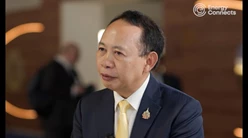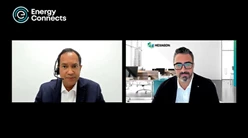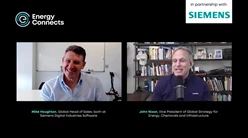German Coalition to Unite Behind Dilution of EU Combustion Ban
(Bloomberg) -- German Chancellor Friedrich Merz is expected to unify his ruling alliance behind his push for the European Union to dilute its 2035 ban on new combustion-engine vehicles in talks Wednesday evening.
The conservative leader, who’s due to host top auto executives and labor officials for a “car summit” on Thursday, wants manufacturers to be allowed to pursue a softer path to climate neutrality, including allowing new plug-in hybrids and battery-powered vehicles with range extenders beyond 2035.
Although some senior members of Merz’s Social Democrat partners have pushed back, including Environment Minister Carsten Schneider, the SPD is expected to fall into line as long as the overall 2035 target remains in place. Olaf Lies, the premier of Lower Saxony whose state government is Volkswagen AG’s second-biggest shareholder, is one influential SPD member backing the chancellor’s stance.
Ahead of Wednesday’s latest round of regular coalition talks in Berlin, Lies said the 2035 target for new cars to be climate-neutral should stay, while echoing Merz in citing “different technology options” to achieve that.
“The most economical will always be electric mobility,” Lies said in a speech to the regional parliament in Hanover. “Other options such as range extenders or plug-in drives may be possible for the transition period,” he added, “but they will likely only account for a small share.”
Germany’s bid to water down the combustion ban is part of a broader effort to support the nation’s ailing automakers — a key sector of Europe’s biggest economy — amid increasing competition from China and uncertainty around US trade tariffs.

Following Thursday’s car summit, the coalition is expected to call on the EU to give automakers more flexibility to reach fleet emissions goals, while the government this week confirmed it will extend a tax exemption for new electric vehicles until 2035.
The European Commission is currently reviewing its emissions caps for the auto sector and will propose a package to help carmakers by the end of the year, according to people familiar with the matter.
That could include additional flexibilities for carmakers on the 2030 goal to cut emissions by 55%, by introducing an averaging system over multiple years, akin to similar tweaks made earlier this year to the 2025 target, one of the people said.
There is still reluctance, however, to lift the target of only selling zero-emission cars and vans after 2035, according to the people, who asked not to be identified discussing confidential deliberations.
The Commission has already committed to creating an exemption for so-called e-fuels, made using captured CO2 and renewable power, which could also be used to power new combustion-engine cars, plug-in hybrids and range-extended vehicles.
The automotive package, which will include measures to solve other issues automakers are facing, will aim to boost demand for European EVs, address competition from China and ease the bureaucratic burden, the people said.
Automakers are broadly committed to the shift to electric vehicles but have long been unhappy with the EU’s timetable.
Mercedes-Benz AG Chief Executive Officer Ola Källenius, who chairs car lobby ACEA, has been one of the most outspoken advocates for softer CO2 emission rules.
“I don’t want Germany to be one of the countries that clings to this false ban,” Merz said Monday in an interview with broadcaster ntv.
He reiterated his support for “technological openness” and called on the EU to make a decision before the end of the year.
©2025 Bloomberg L.P.





